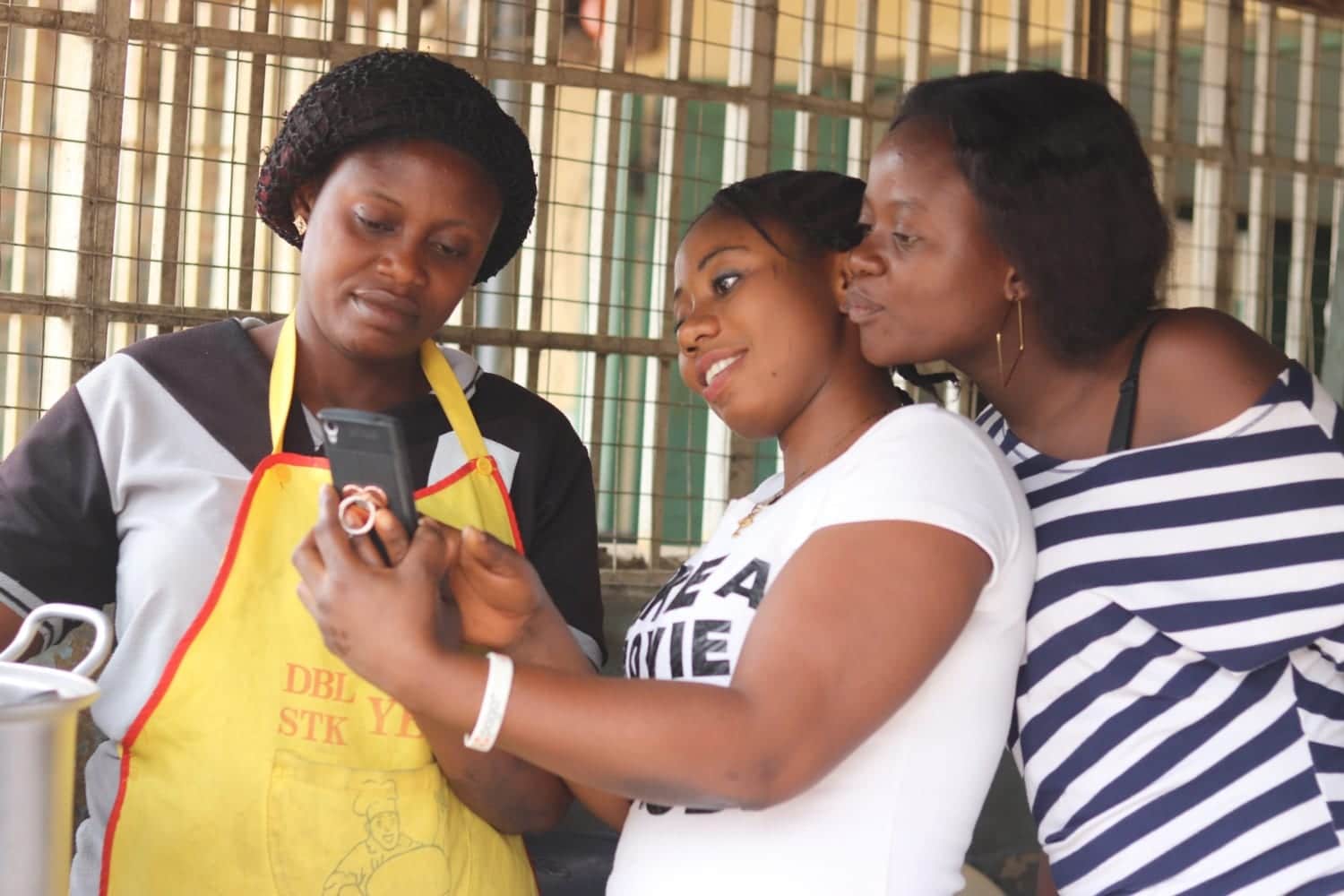

Tech4Families: Addressing the gender digital divide
We got families talking about technology in Northern Nigeria, allowing girls and women to benefit from the positive aspects of the internet. 2018-2020
A Project of —
Nigeria

Digital technology, including the internet, has had an immeasurable impact on the lives of many across the globe. However, access to and use of technology is neither universal nor equitable. Women and girls are the most disadvantaged with economic, social, and cultural obstacles both limiting and preventing women’s access to technology and the benefits it brings.
In Northern Nigeria, around 60% of the female population is not able to access the internet, and research shows that deeply entrenched social, gender, and cultural norms present a significant barrier to women and girls’ access to and use of technology and the internet. According to a recent study conducted by the Centre for Information Technology and Development (CITAD), 55% of men in Northern Nigeria do not want their wives to use the internet, and 61% of fathers discourage their daughters’ use. While male figures are often the ones controlling access at a household level, data indicates that both sexes have internalized these norms and restrictive behaviors.
In response to this, EAI bid on USAID’s WomenConnect Challenge and we were thrilled that our innovative norms-centered design was chosen out of over 500 applicants. Based on the tested intervention methods from our Change Starts at Home project in Nepal, but with a focus on entire family units, Tech4Families was aimed at lessening the gender digital divide by addressing the social barriers to women’s and girls’ access to and use of technology at the family level as a critical first step.
Focused on an interactive curriculum and corresponding radio drama, family groups (consisting of fathers, mothers, sons, and daughters) met twice a month to critically reflect on the barriers preventing women and girls from accessing technology and learn new skills, from setting up an email account or learning about cybercrime to effectively communicating as a family. In the final phase of the curriculum session, participants worked together to plan additional community outreach activities to share new ideas, attitudes, and behaviors from their small family groups with the wider community.
We saw significant shifts in attitudes among both female and male participants, and new norms were adopted and promoted that encourage and inspire women and girl’s equitable use of technology.
Parents and children are shared how meeting as a family brought them closer and shifted family dynamics to allow for more open conversations about the internet:
Initially we all thought the internet is such a risky thing to engage with but now we all know that the internet is a friendly space.
We get to sit as a family to discuss internet and technology especially during our take-home assignments. I think we all find these family sessions entertaining, and our children open up to us.
These sessions have made me want to put more effort into ensuring that women use the internet in my home and workplace.
One family confided that if not for the Tech4Families project, they would have simply banned their daughter from using social media for fear she was doing something inappropriate and concern for what others outside the family might say. However, they have learned that the best approach is to look for ways to support their daughter and educate her about safety online, rather than simply taking away her phone.
Please watch the video below to learn about the impact Tech4Families has had.
Partner with us
Collaborate with EAI to adapt our norms change work to address the gender digital divide.